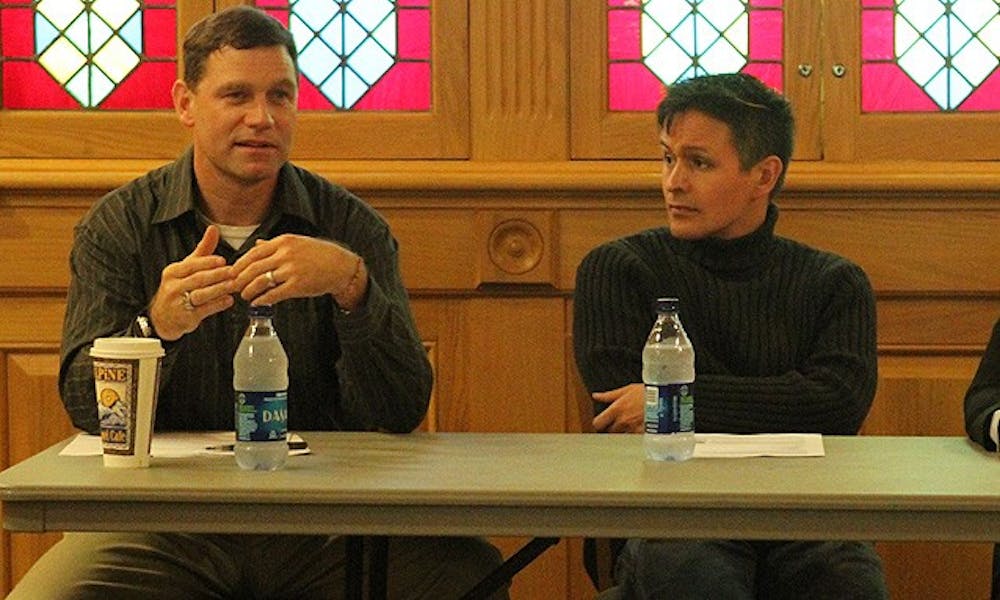Panelists at “Do Ask, We’ll Tell” agreed that combat readiness would not be hindered by gays serving openly in the military.
Blue Devils United President Ollie Wilson, a junior, joined two Duke professors and Col. Kevin Colyer to discuss both the social and military implications of repealing the “don’t ask, don’t tell” policy, which remains one of the most pressing gay rights issues in the country. All four were in favor of allowing gays to serve openly.
“It’s not as if American soldiers are not already serving with openly gay individuals,” Wilson said, pointing out that many American soldiers have worked with gay soldiers from nations in which they are allowed to openly serve.
Sharon Holland, associate professor of English and African and African American studies, cited a recent study that found that 70 percent of soldiers support the repeal of the policy. She added that it is becoming “harder and harder” to argue that Americans are worried about the effects of the repeal.
Colyer, who is at Duke for one year as a part of a U.S. Army War College program, compared the integration of open gays into the military to that of black soldiers and women. Despite initial prejudice, the troops grew to accept both groups over time.
The more pressing problems would be logistical, he said, recalling that when women were integrated into the military they had to be given separate barracks and that contact between the sexes had to be regulated. One question policy makers would have to consider would be whether or not separate living quarters would be needed for gay troops, as well.
“Do we have to have a separate set of facilities or can we allow a homosexual male to share quarters with a heterosexual?” Colyer asked.
But Wilson called the idea that separate facilities would be required “a little bit absurd.”
“It defines people in categories when in reality it is much more complicated than that,” he said.
Wilson cited the issue of accommodating bisexual troops and said separate facilities are not a legitimate solution to the concern.
The panelists also recognized the wider social implications of repealing the “don’t ask, don’t tell” policy. Holland said the policy has the “effect of closeting people who are already out.”
Sean Metzger, assistant professor of English who specializes in gender studies, said the debate has implications beyond military society. Metzger asked the audience to think back to the 1940s, when troops married people abroad despite domestic laws against interracial marriage.
“The military is more often than we think at the forefront of social change because it places people in situations in which our ideas need to be reexamined,” he said.
Metzger said the policy reflected the social climate of the time it was passed, and that its repeal would be an indication of increased tolerance.
Colyer said the military must wait for Congress to take action but is certain that the military will readily accept the repeal of the policy if it happens.
“I think we’re ready to allow gays to openly serve,” Colyer said. “As someone who has literally put his life on the line for our system, I believe in our system. Normally, it results in positive change.”
Get The Chronicle straight to your inbox
Sign up for our weekly newsletter. Cancel at any time.

